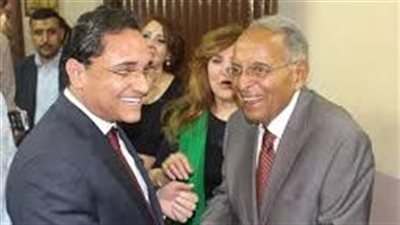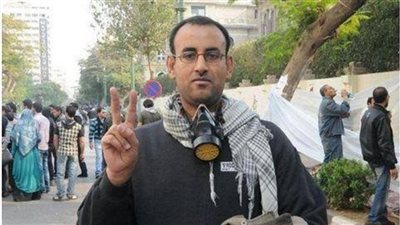From the archive of Abdelrahim Ali
Three positions that define Field Marshal Tantawi's life

It was the will of God that Field Marshal Mohamed Hussein Tantawi would become the man who would rescue Egypt from falling down as a state.
This came at a defining moment in the history of this country.
When the January 2011 protests erupted, Field Marshal Tantawi knew, by virtue of his position and the information he accumulated throughout his leadership of the army, that these protests marked the end of the regime of the late president Hosni Mubarak.
He was only preoccupied with how he could protect his country against the schemes that were being concocted for it at the time.
I was fortunate enough to get insight into some of the man's positions over the years, ones that helped Egypt cruise to a safe shore at times of major turbulence.
I detail three only of these positions below:
The first happened when Lieutenant-General Sami Anan was in the United States. Protests happened to erupt against Mubarak in the middle of the visit.
Anan met a host of American officials during the visit, who expected the protests to bring an end to Mubarak's regime.
The same officials told Anan that Mubarak had to leave the office of president.
They said Mubarak should not prevent any of Egypt's political forces from reaching power.
On the way back to Egypt, Anan thought of staging a coup, one that would end Mubarak's rule and prevent any political force from reaching power.
This was silly because it would have pinned the people against the army, something some forces wanted to happen.
Anna confided the matter to Field Marshal Tantawi when he visited him at his office soon after his return.
"Have you told anybody else about this idea?" the field marshal asked Anan.
"No," Anan retorted.
"Ok, I will pretend not have heard this at all," Field Marshal Tantawi said.
I was told about the second position by Lieutenant-General Ahmed Shafiq.
It happened when Mubarak thought of appointing a vice-president for the first time.
Mubarak proposed the position to Field Marshal Tantawi first.
However, the field marshal told him that the army officers and troops need him now more than ever before.
Mubarak then thought of then-intelligence chief, Major General Omar Suleiman.
In rejecting the post, Field Marshal Tantawi was aware of a number of facts.
One of these facts is that he knew that the man who would succeed him as army chief would be Anan himself who coveted power.
He knew that Anan would immediately move ahead with his coup idea soon after he mounts the saddle of the Egyptian army.
This would have brought civil war to Egypt.
The second fact was that Field Marshal Tantawi knew that Mubarak's regime was on the verge of falling down.
This meant that everybody connected with this regime, including the vice-president to-be, would fall down with it.
The third position happened when the late Islamist president Mohamed Morsi summoned Field Marshal Tantawi and informed him about his decision to lay him off together with the chief of staff of the Egyptian army, Anan.
Morsi also told Tantawi that he would appoint Lieutenant-General Abdel Fattah al-Sisi as Minister of Defense.
Tantawi was aware of what was going on in Anan's mind at the time. This was why he hurried to the Ministry of Defense headquarters.
Soon after he arrived, he met Anan on the stairs.
"What you think of will not happen," Tantawi told Anan.
"We saved Egyptians' blood when we were at the top of power in this country," he added.
"We will not spill people's blood when we are out of this power," he returned to say.
These three events charted the right path for the army's role in the years that would follow, namely protecting Egypt and paving the road for the July 30 Revolution when the people discovered the betrayal of the Muslim Brotherhood, Morsi's movement.
There are other great events of course, but these three determined many important things in Egypt and set the country on the right course.
Tantawi visited Tahrir Square to reassure everyone that they are all equal, regardless of who they are.
On February 11, 2011, Tantawi asked then-vice-president Omar Suleiman to step down and hand power over to the army.
These events give us insight into the exceptional nature of Field Marshal Tantawi.
May God bless the late field marshal and may his soul rest in peace.








